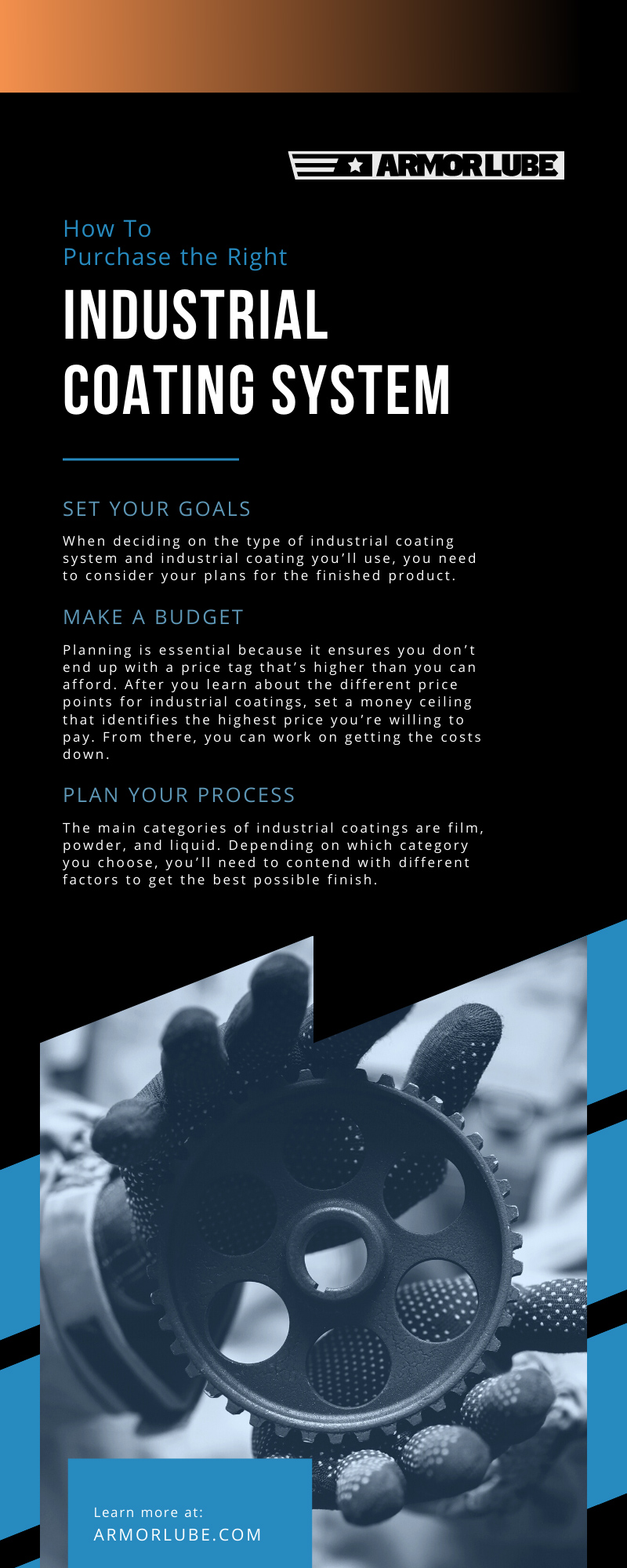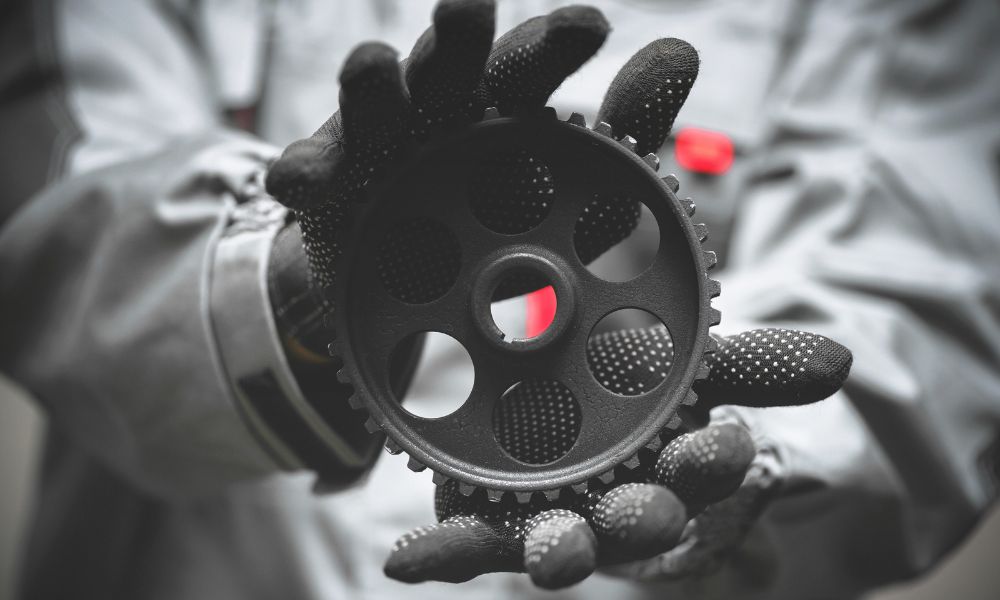Industrial coatings are essential for a number of industries, including the automotive, aerospace, and firearms industries. However, there are dozens of useful industrial coatings and industrial coating systems to choose from, making it hard to determine the best one for you. Read on to learn how to purchase the right industrial coating system.
Types of Industrial Coatings
Industrial coatings are a chemically engineered covering designed to protect all sorts of different products, from internal car parts to external plane parts. Depending on the application, you’ll need to find a coating that protects against different types of wear and tear.
Sometimes, a part is subjected to environmental damage from wind or rain, while other parts may need to withstand friction from other parts. Depending on the durability you require, your parts may need multiple layers of coating to function effectively. On top of a chemical coating with a purpose, you may also want an aesthetic coating to enhance the look of your product.
Polyurethane
Polyurethane is an industrial coating that’s commonly used for various products. Polyurethane offers good durability and abrasion resistance, but it is also a softer option than some other coatings. For this reason, many floors are coated in polyurethane. This coating protects the floor material from pedestrians, and the pedestrians don’t need to tire their feet on a rock-hard substance.
While other coatings may contract or crack under cold conditions, polyurethane’s natural elasticity allows it to maintain its shape even when it is subjected to below-freezing temperatures.
Epoxy
Traditionally, epoxy is applied in three layers, starting with a primer. After the primer, the epoxy is applied. Lastly, you’ll need to finish the process with an epoxy binder to enjoy the full benefits of epoxy coatings. These benefits include resistance to weathering, abrasion, and corrosion, which is exactly what you want in a harsh environment.
If your parts are going to be used in a high-heat setting, epoxy is a great choice, as it is naturally resistant to high temperatures. However, parts that use epoxy coatings are best used indoors or underwater, as the finish can become chalky when exposed to sunlight.
Acrylic
Acrylic coatings are great for achieving a finished product that looks great. Many auto parts use acrylic coatings to facilitate the glossy look you see on motor vehicles.
DLC
Diamond-like carbon (DLC) coatings are an excellent choice for aerospace, automotive, and firearm applications for a few reasons. First, diamond-like carbon coatings enjoy the high hardness of diamonds. That’s right—you can coat your product and make it as tough as carbon’s hardest form. This is an excellent choice for both durability and environmental protection.
However, DLC also uses another of carbon’s forms: graphite. While graphite isn’t nearly as strong as diamond, it performs incredibly well when subjected to friction. If your internal or external components rub against each other, our DLC coating services will keep your parts sliding nicely while protecting them from wear.
Set Your Goals
When deciding on the type of industrial coating system and industrial coating you’ll use, you need to consider your plans for the finished product.
Time of Production
One key factor to keep in mind is the time required to fully coat each piece. As we mentioned earlier, some industrial coatings require several layers before they are finished. With each added layer, you need to account for extra time in the production process.
If you can’t afford to spend more time coating your products, you’ll need to find an industrial coating system that produces a result that gets the job done using the fewest number of layers.
Ongoing Affordability
As with any part of the production process, you need to factor in more than just installation costs. You also must consider how much the industrial coating system will cost you in the long run. Some finishing systems may cost a lot of money upfront but allow you to save money moving forward, whether due to affordable materials or faster production.
On the other hand, a system that costs less to set up may come with higher prices moving forward—you need to consider all the angles.
Material Properties
The properties of the material you want to coat are also a significant consideration. Some hard metals may need to be ground before they can be coated, while softer metals may work better with a less harsh process.
Final Result
Finally, none of the previous goals are important if they can’t achieve the result you’re looking for. You may need a finished product that can withstand heavy wind and rain. Even if it takes more production time than you were planning, that end goal is the most crucial consideration. Before you can think about the logistics, you need to know your ideal result and work backward from there.
The final result consists of more than just durability and abrasion resistance, though. Color and finish are significant considerations for the final look of your product, especially if you hope to get customers or investors interested in what you’re selling. Don’t settle until you have a finish that checks all the boxes.
Make a Budget
Planning is essential because it ensures you don’t end up with a price tag that’s higher than you can afford. After you learn about the different price points for industrial coatings, set a money ceiling that identifies the highest price you’re willing to pay. From there, you can work on getting the costs down.
While there are certainly cheaper coatings available, some finishes need to be applied by the professionals—those results speak for themselves.
Plan Your Process
The main categories of industrial coatings are film, powder, and liquid. Depending on which category you choose, you’ll need to contend with different factors to get the best possible finish. For example, some coatings may cure more quickly under certain environmental conditions. Getting these factors wrong can exponentially increase the time it takes to finish the process.
Various factors can allow you to either speed through the drying process or elongate it. You know better than anyone that time is money, so choose your materials and process carefully.
Now that you know how to purchase the right industrial coating system, contact ArmorLube to set up your system as soon as possible. We’ll get your coating project off the ground in no time.

